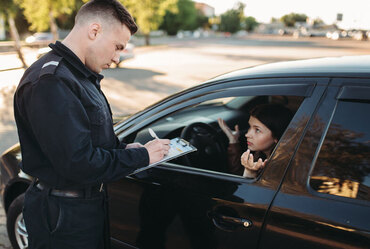Search

Receiving a traffic ticket can be frustrating and inconvenient, but it’s not always the end of the road. Many drivers may not realize that they have the option to contest a traffic violation. Successfully challenging a ticket can save you from paying hefty fines, accumulating points on your driving record, or facing increased insurance premiums. Here’s a comprehensive guide on how to fight a traffic violation effectively.
The first step in fighting a traffic ticket is to understand the nature of the violation. Carefully review the ticket for details such as the type of infraction, the location, and the officer’s observations. Common violations include speeding, running a red light, or failing to signal. Understanding the specific charge will help you determine if there are grounds for contesting it.
Additionally, research the traffic laws in your area to verify whether the violation is valid. Sometimes, drivers are ticketed due to misunderstandings or errors on the part of law enforcement.
Not every ticket is worth contesting. Evaluate the potential costs of fighting the ticket—such as legal fees and time spent in court—against the fines and penalties you’d face if you simply paid it. If the violation is minor and unlikely to affect your insurance rates, it may be more practical to pay the fine. However, if the ticket could lead to severe penalties or jeopardize your driving privileges, contesting it is often worthwhile.
Building a strong case requires evidence. Start by collecting any documentation or information that could support your argument, such as:
To contest your ticket, you’ll need to formally request a hearing. Follow the instructions provided on your ticket or contact your local traffic court for guidance. Missing the deadline to request a hearing typically results in automatic acceptance of the ticket.
Once your court date is set, prepare thoroughly. Consider consulting a traffic lawyer, especially for complex cases or serious violations. Their expertise can increase your chances of a favorable outcome.
Your defense will depend on the nature of the violation and the evidence you’ve gathered. Common defense strategies include:
On the day of your hearing, arrive early and dress professionally. Present your case clearly and respectfully, using the evidence you’ve prepared to support your arguments. Stick to the facts and avoid becoming emotional or argumentative.
If you’ve hired a traffic lawyer, they will handle most of the communication and presentation for you. Their experience can be crucial in navigating legal proceedings effectively.
In some cases, the court may offer a compromise, such as reducing the fine or amending the violation to a non-moving offense. Be open to negotiation if it results in a more favorable outcome.
If the court rules against you, you may still have the option to appeal the decision. Consult your lawyer about the feasibility of pursuing an appeal and the steps involved.
Fighting a traffic violation requires time, effort, and preparation, but the rewards can be significant. By understanding your rights, gathering strong evidence, and presenting a solid defense, you can challenge unfair tickets and protect your driving record. Remember, the key to success is staying informed, organized, and persistent throughout the process. The next time you’re issued a traffic ticket, consider taking these steps to fight back effectively.